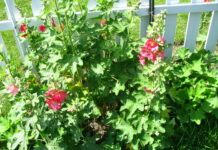Photo Credit: Global Diaspora News (www.GlobalDiasporaNews.com).
The Eastern Cape Department of Rural Development and Agrarian Reform has confirmed cases of Foot and Mouth Disease (FMD) on one of the farms in the province.
A case of FMD was confirmed on a dairy herd located at Humansdorp in the Kouga after the National Veterinary Reference laboratory conducted epidemiological investigations.
This after the animals showed clinical signs of the disease and on 1 May 2024, the positive laboratory results confirmed the diagnosis.
The provincial department’s Veterinary Services Chief Director, Dr Cebisa Mnqeta, said the farm initially recorded about 70 animals that were showing clinical signs and has since been recording an average of 10 new cases per day.
Mnqeta said the infected farm, including adjacent neighbouring farms and contact farms, have been put under quarantine whilst waiting for laboratory results to rule out the presence of the disease in those farms.
“The first batch of samples were shipped to the National Veterinary Reference laboratory on 03 May 2024 from three contact farms including an adjacent communal area. All these samples tested negative for the virus.
“The surveillance on neighbouring farms and on any other farm that is reported to have animals showing signs or symptoms of foot and mouth disease is ongoing. We have established a joint operations centre at the Kouga Local Municipality for coordinating work of all key stakeholders to contain [the] further spread of the disease in our province,” Mnqeta said.
Signs and symptoms of foot and mouth disease include hyper salivation, animal refuses to eat and when the mouth is opened vesicles and ulceration in the tongue and buccal membranes are observed, lameness is observed and the drop in milk production especially in the highest producing dairy animals.
Symptoms
Clinical signs can vary from mild to severe, and fatalities may occur, especially in young animals.
Mnqeta has urged farmers, livestock owners and people of the province to be alert and look for any signs and symptoms of the disease in their herds.
“Farmers are advised not to move their animals unnecessarily to avoid the spread of the disease. Should farmers feel obliged to move their animals, they must contact their local veterinarian for advice.”
Tracing and containing the virus
Mnqeta added that the department, collaborating with affected farmers and local stakeholders, continue to investigate the origin or source of the virus through backward and forward tracing.
As part of the strategy to control the spread of infection to the neighbouring farms, Mnqeta said the department will from today start the vaccinating of all cattle in the index farm and associated farms. – SAnews.gov.za
Source of original article: SAnews – South African News (www.sanews.gov.za).
The content of this article does not necessarily reflect the views or opinion of Global Diaspora News (www.GlobalDiasporaNews.com).
To submit your press release: (https://www.GlobalDiasporaNews.com/pr).
To advertise on Global Diaspora News: (www.GlobalDiasporaNews.com/ads).
Sign up to Global Diaspora News newsletter (https://www.GlobalDiasporaNews.com/newsletter/) to start receiving updates and opportunities directly in your email inbox for free.

































